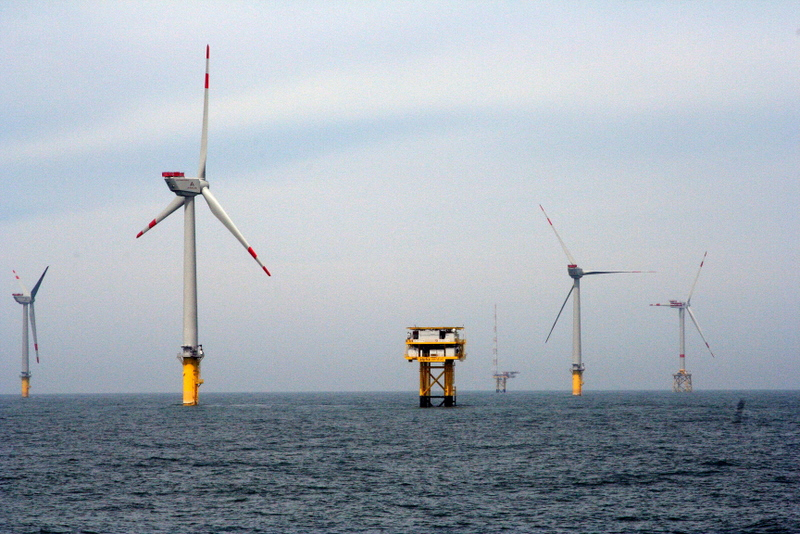Energy
Biden EPA Adjusting Costly Green Power Plants Scheme To Hedge Against Legal Challenges

June 1, 2010 - REpower 5 Megawatt Offshore Wind Turbines and Energy Substation, Alpha Ventus Offshore Wind Farm, Germany (Photo by Gary Norton / DOE)
However, the EPA’s attempts to make America’s power plants go green will still be exorbitantly expensive and a detriment to the reliability of America’s power grid, experts told the DCNF. The EPA’s approach may allow it to withstand some legal challenges, but the delays to its timeline may render the regulation more easy to repeal in the future, especially if former President Donald Trump returns to the White House in January 2025, according to Bloomberg.
“I can confidently say that this is the EPA going into CYA mode on grid reliability. They are hoping that natural gas can fill in the gaps left by the retiring coal facilities and sidestep the obvious reliability problems that stem from those closures. The problem is the limits on new gas will make this more difficult to build and operate enough natural gas plants to keep the lights on,” Isaac Orr, a policy fellow at the Center for the American Experiment who specializes in power grid analysis, told the DCNF. “EPA was always going to put a spin on this rule, but physics will win out.”
Orr and CAE conducted their own analysis of the EPA regulation in August 2023. They found that the regulation would most likely lead to significant supply adequacy problems and blackouts in the huge swath of the American heartland covered by the Midcontinent Independent System Operator (MISO).
Marlo Lewis Jr., a senior fellow for the Competitive Enterprise Institute, generally agreed with Orr’s assessment of the EPA’s adjustment to the regulation.
“The greenhouse gas guidelines EPA proposed in May 2023 for existing baseload natural gas power plants are infeasible and unaffordable. Many—perhaps most—owners of baseload natural gas power plants will choose to shut down the plants rather than install 90% carbon capture and storage by 2035, or ‘co-fire’ with 96 percent low-greenhouse gas hydrogen by 2035,” Lewis told the DCNF. “EPA grudgingly recognizes that because the guidelines would kill baseload natural gas generation, they will also ignite a political firestorm if finalized before the November elections. So, Team Biden will wait until 2025 before letting the other shoe drop.”
Critics have characterized the EPA’s proposal as a de facto end run to produce nearly identical outcomes to those projected in the Obama administration’s “Clean Power Plan” that the Supreme Court shot down in 2022. The Supreme Court ruled in West Virginia v. EPA that the EPA exceeded its mandate as an administrative agency in trying to promulgate the “Clean Power Plan” and overturned the regulation about eight years after the Obama EPA rolled it out in 2014.
The EPA did not respond immediately to a request for comment.
All content created by the Daily Caller News Foundation, an independent and nonpartisan newswire service, is available without charge to any legitimate news publisher that can provide a large audience. All republished articles must include our logo, our reporter’s byline and their DCNF affiliation. For any questions about our guidelines or partnering with us, please contact [email protected].

